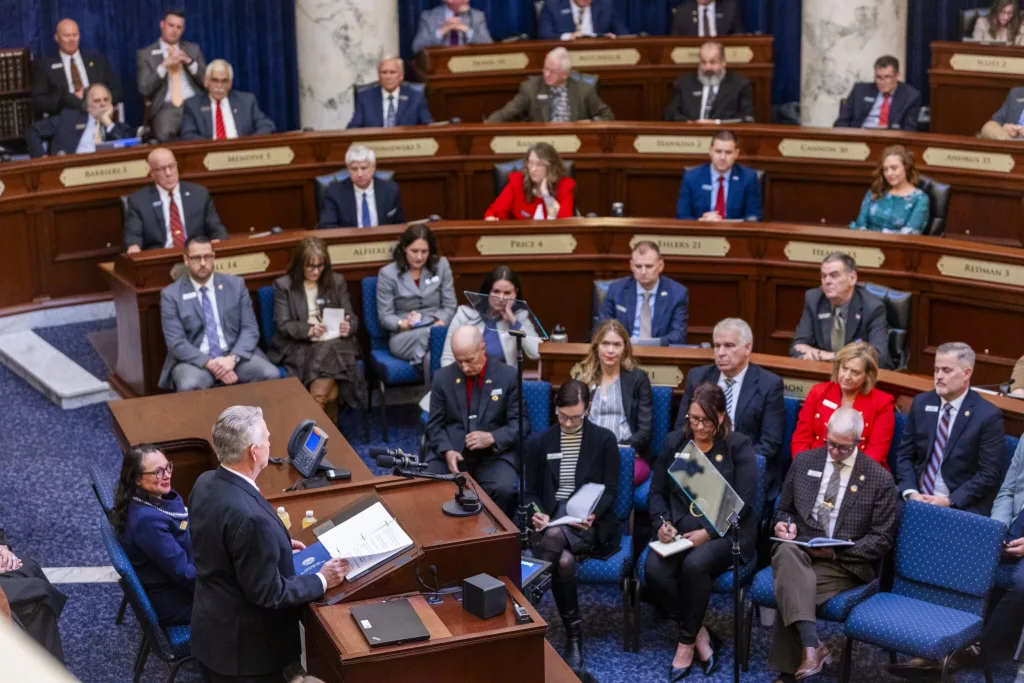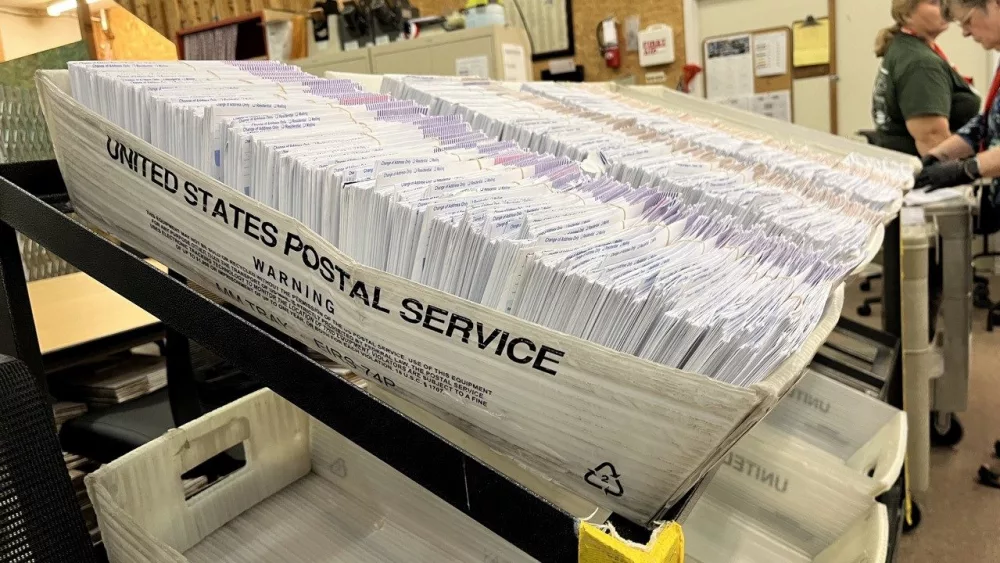BOISE, ID – As the Idaho Legislature ended the 2025 legislative session on Friday, lawmakers quickly passed a reworked version of a so-called medical freedom bill.
Senate Bill 1210 is the Legislature’s response to a similar bill Gov. Brad Little vetoed Saturday.
The new bill still pursues a similarly broad medical mandate ban, which would bar Idaho businesses, government entities, schools and colleges from restricting entry, employment or services based on requirements for medical interventions — like vaccines, medical diagnosis or treatment.
Lawmakers spent much of Friday without taking action, as they waited for the House to attempt to amend the bill. The House amended the bill just before 2 p.m.
In the House’s debate over its new version of the bill earlier this week, critics’ main concern was that the bill would prevent workplaces from refusing service or entry to sick people.
That appears to be true under the bill.
On Friday, the House rejected an amendment attempt described as a way to shield employers from liability if sick employees who refuse to leave get injured at work.
Despite this being the third iteration of the bill the House has considered, and despite the House’s amendments earlier Friday, Rep. Todd Achilles, D-Boise, said the bill remained “deeply flawed” and it keeps the same “overly broad definition” of medical intervention.
The Idaho House passed the bill on a 44-23 vote at about 3 p.m. Friday. An hour later, the Senate passed it on a 27-6 vote.
After passing both chambers of the Idaho Legislature on Friday, the new bill — which carves out exceptions for schools to send home sick kids — now heads to the Idaho governor for final consideration.
When the bill is transmitted to the governor, he has five days, excluding Sundays, to decide on it. He has three options: sign it into law, allow it to become law without his signature, or veto it.
How the bill works: Medical mandates include diagnosis, prevention or cure to diseases. Extends to entry or service refusal.
Under the bill, medical interventions include “a procedure, treatment, device, drug injection, medication, or action taken to diagnose, prevent, or cure a disease or alter the health or biological function of a person.”
For businesses and any Idaho governments — local, county or state — the bill bans requiring medical interventions for employment, admission to venues, transportation, or providing products or services.
Idaho schools — private or public — including colleges, universities and trade schools would also be blocked from requiring medical interventions for school attendance, employment, or entrance into campus or school buildings.
The bill is cosponsored by Rep. Robert Beiswenger, R-Horseshoe Bend, and Sen. Dan Foreman, R-Moscow.
Earlier this week, Beiswenger told House lawmakers the bill “prevents medical force, medical mandates. People can choose them if they want to, but they don’t have to if they don’t want to. You can ask people to leave your place of business. But you can’t force them into medical treatments like vaccines or other kinds of treatments.”
The new broader medical intervention requirement ban would expand on a previous Idaho law banning COVID vaccine requirements.
In 2023, Little signed the COVID vaccine requirement ban law, despite its similarities to one he vetoed a year earlier, the Idaho Statesman reported.
Bill emerged out of Legislature’s week of work to respond to governor’s veto
The bill came after a week-long, fast-moving effort by Idaho lawmakers to respond to Little’s veto on the original bill the Legislature passed, Senate Bill 1023.
Explaining his veto, Little wrote he valued medical freedom but worried that the bill “removes parents’ freedom to ensure their children stay healthy at school because it jeopardizes the ability of schools to send home sick students with highly contagious conditions,” including measles.
On Thursday, the Senate failed to override the governor’s veto on a 20-14 vote, falling short of the two-third support needed, Idaho Education News reported.
Senate Bill 1210, the Senate’s revised version of the original bill, succeeded over the House’s revised version, House Bill 472, which passed the House but never received a Senate committee hearing.
The Senate’s version adds language specifying the school medical mandate ban provision is subject to various other Idaho laws that let school boards block sick students from attending, spell out parental rights, and more. The House amended the bill earlier this week to remove an exemption for day cares.
On Friday, the House amended the Senate’s version to:
- Include private and parochial schools as being allowed to block sick students from attending;
- Bar state agencies from adopting regulations, including policy or administrative rule, that conflicts with the bill; and
- Add a new section stating that “Not withstanding any other provision of law to the contrary, under no circumstances may a healthy person be excluded in a disease outbreak due to such person’s vaccination status.”
The original bill, Senate Bill 1023, was amended twice before passing the Legislature. The Senate’s revised version that passed was also amended twice.
Health Freedom Defense Fund President and Founder Leslie Manookian wrote the original bill.
Republican lawmakers express optimism for Gov. Little’s support
Asked by another lawmaker in a House committee Friday morning about the bill’s chance of securing the governor’s approval, Foreman was hopeful.
“I won’t speak on behalf of the gentleman on the second floor,” Foreman replied, using a common phrase legislators use to discuss the governor’s office on the second floor of the Statehouse. “But I guess I would term it this way. If I was — no disrespect intended here — but if I was going to Vegas, I would have really good odds.”
Asked about confidence lawmakers expressed in the governor supporting the bill Friday afternoon, House Assistant Majority Leader Josh Tanner, R-Eagle, said he thought “everybody’s in agreement and the issues are resolved.”
Later Friday, the governor’s spokesperson, Joan Varsek, told the Sun the governor’s office doesn’t comment on bills until Little acts on them.





